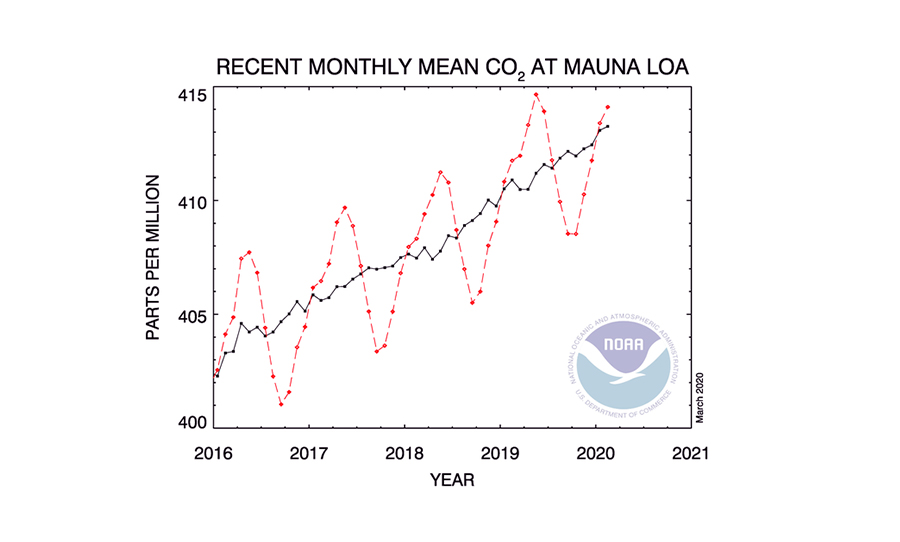In a positive turn of events amidst the chaos, cannabis sales are up, and scientists suggest CO2 emissions are down, if only at least temporarily.
Most likely due to the halt of production and freight from industry giants, carbon dioxide levels have momentarily paused their increase.

Although overall global CO2 levels continue to rise, in the heat of the coronavirus outbreak, scientists have noticed a recent slowing.
Preliminary data from the Mauna Loa observatory plots the monthly mean carbon dioxide (red dotted line) and the average carbon dioxide after correction from seasonal cycles (black dotted line). CO2 values are known to drop and rise every year with the change of the seasons, especially as plant life dies and decays in the colder months.

Although not a colossal change, the graph shows signs of slowed carbon emissions in comparison to 2019.
The majority of human sources of CO2 are produced by fossil fuel burning, food production, and industry. As such, recent quarantine, self-isolation, and complete country lockdown efforts are likely contributors to reduced emissions.
With less inter-continental flights, freight moderation, and many citizens confined to their homes, transport pollution is bound to diminish.
I’m not certain this is caused by #COVID19 but there have only been two years since 1975 when CO2 rose less since the first of the year. pic.twitter.com/t7B1HbIcAs
— Kris Karnauskas (@OceansClimateCU) March 14, 2020
Coal consumption in China saw a rapid decrease as the country began battling the virus outbreak shortly after the Chinese New Year celebrations. China is one of the largest CO2 hotspots in the Northern Hemisphere. This Global Carbon Project graph displays prominent historic events that contributed to reduced CO2.
Global Fossil CO2 emissions could decline in the range of 0.2 to 1.2% this year due to Covid-19, based on current predictions on economic growth.
Follow this thread and The Conversation article by @Peters_Glen https://t.co/1Cpviq3Ulg pic.twitter.com/0OIbxTeK6d
— GlobalCarbonProject (@gcarbonproject) March 17, 2020
Although this is a positive outcome from the coronavirus pandemic, it’s not a sustainable method of combatting climate change. We should still make every effort to educate ourselves and reduce global emissions.



